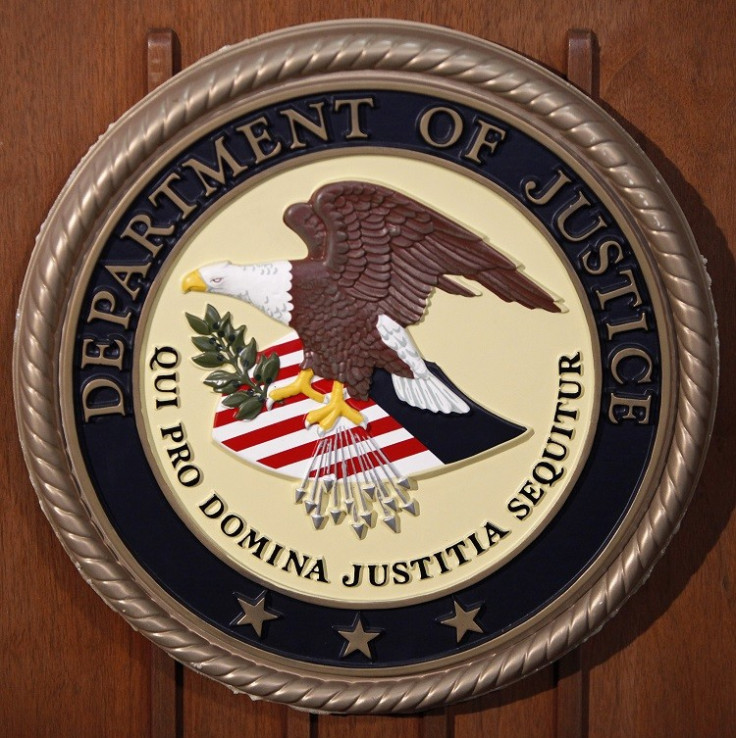Silk Road prosecutors talk about Bitcoin, Ripple and money laundering

The prosecutors that finally unravelled Silk Road, and who set a standard with money laundering charges against Ripple, have been described by members of the Bitcoin community as "bad-ass crypto cops".
"I didn't know we were called that," said Kathryn Haun, Assistant US Attorney and federal prosecutor at the Department of Justice.
Haun's colleague and cybercrimes investigator Tigran Gambaryan, a special agent with the criminal investigation division of the Internal Revenue Service, added: "I'm not Bitcoin police, I'm an investigator - whatever payment concerns an IRS investigator, that's what our expertise is. We have been doing this since the days of Al Capone. No matter what method a criminal uses we will find a way to track it down."
Haun and Gambaryan collaborate under the auspices of the National Cyber Investigative Joint Task Force's virtual currency team. They will be talking in detail about their work at the forthcoming Consensus event in New York City on 10 September.
Silk Road, the movie
Haun explained that until sentencing is passed in the case of Silk Road there is a limit to what they can say about it. She noted that former DEA officer Carl Force, in his plea agreement entered on July 1, made it public that he had entered into a movie deal with 20th Century Fox, which accounted for some $240,000 of payments.
Corrupt undercover officers Carl Force and Shaun Bridges siphoned hundreds of Bitcoin from Ross Ulbrecht's Silk Road operation, spinning an astonishing web of deceit, extortion and even faking a murder in the process.
Haun said: "We understand that movie deal is in the works, so the plot got more interesting you could say, after Force made his plea. Shaun Bridges will plead guilty on Monday."
Gambaryan added: "Fox got a good deal. He [Force] is an interesting character."
Silk Road's Hollywood treatment is indeed imminent. 20<sup>th Century Fox and Cherin Entertainment have hired author Dennis Lehane, who wrote Shutter Island and Gone Baby Gone to write the script.
Gambaryan emphasised that Bitcoin is only partially anonymous, and that his office has proved it is always traceable. "Our criminal complaint was, to the best of our knowledge, the first time that blockchain analysis was used to support criminal charges."
Robin Hood
Haun agreed that in some ways the blockchain gives great transparency. However, "it's only as good as the output", she said.
"For example, say we want to go subpoena someone; they are moving around a lot of funds on the blockchain, and finally they cash out through an exchange. Well it depends on what exchange they are using.
"If we go to a kind of compliant exchange – and I don't call them friendly to law enforcement, they are not friendly to law enforcement - but let's call them compliant with appropriate AML and KYC mechanisms in place, and they can accept some kind of service of process and give us back something saying, 'oh yes, here is the person who cashed this out - their name is ... john smith and they have this address, and here's the identity we took from them when we set up the account'.
"That's very different than if we go first to an exchange that's not even compliant or does not accept services process, or, that might accept it and then give us back something saying 'oh yeah here's who owns this account - Robin Hood at 123 Main Street'.
"Obviously, they haven't done the job that the law and regulations require of maintaining the customer data that they are supposed to maintain to comply with money laundering laws. It really depends on the players in the Bitcoin ecosystem and what kind of information they are keeping, and how much they are complying with the law," said Haun.

Gambaryan added: "We don't want special laws just for Bitcoin; I don't want anything different from what I would get from a bank. These exchanges are financial institutions.
"We are not trying to say, 'pick on Bitcoin', so you need lots of extra information, we just want enough to able to identify where illegal proceeds that we are trying to trace are going. For that to happen we do need the industry to work with us."
Haun said she believes that fundamentally the vast majority of players in the ecosystem want to gain legitimacy, want to be accepted by the financial institutions.
"It's in the legitimate players' interest for there to be some transparency because that's how the banks are going to accept them - that's how mass adoption will happen."
Of course in these post-Snowden days privacy has been highlighted as a human right that is easily violated by authorities.
"There is a balance to be struck between privacy and the ability of law enforcement to investigate and bring to justice crimes that are affecting all of us," said Haun. "I would agree with that and everybody on the law enforcement side would agree with that."
The Fog
In the Silk Road case, transactions were made harder to trace because they had been tumbled together. But using a Bitcoin tumbler is a legitimate privacy enhancing measure – privacy is a space in which we can expect to see growth. IBTimes asked the agents how tricky tumblers potentially make their work.
Gambaryan said: "Tumbling is not always a criminal thing, but it can be used for crime just like any other technology can pretty much be adapted to criminal use. Some people may say they want to do it for privacy or whatnot, but yes absolutely, there are people intentionally trying to use a tumbler to circumvent the financial system and make it harder for law enforcement to track the funds that are used in criminal activity."
Haun added: "It really depends on how sophisticated the criminal is, or the bad actor.
"I would say one of the important things from the government's perspective is for us to be aware of, and educate our people - our agents and our prosecutors and law enforcement community in general - that these things exist.
"To bring them up to speed completely on all of the technical aspects of what are the different tumblers, what are their mechanisms, what are the things they allow one to do, and how do you detect that.
A recent report by researchers at Carnegie Mellon University highlighted the fact that dark marketplaces like Silk Road proliferate and also seem to be highly resilient to law enforcement efforts.
Haun was philosophical about this running battle: "I think just like the internet, we saw this in the early days, there's the legitimate uses and the illegitimate uses and I think it's always going to be that way.
Gambaryan said: "I haven't read the study but from my perspective and seeing things in the industry, it seems like Bitcoin has kind of grown up. For instance Coindesk putting on this event: it's funded by Citibank, the conventional financial industry, rather than purely libertarian, screw the government kind of thing."
Ripple Effect
Haun and Gambaryan brought in US regulator FinCEN in the case against Ripple, which resulted in a non-prosecution agreement, and was the first of its kind within the digital currency arena.
Haun said: "What we found through Tigran's investigation was really that Ripple (and Ripple is a different company today than it was at the inception of the investigation), they were not collecting any kind of data at all from customers moving hundreds of thousands of dollars across their network.
"So you could go for example and set up a Ripple account and name yourself Micky Mouse and provide zero information whatsoever, and engage in large scale movement of money."
Haun said non-compliant behaviour can affect everyone negatively: "Let's say hypothetically the theft that happened at Target with all the customers' data stolen - let's say the payment for that is going to be made in some sort of digital currency. It's in everyone's interest not to have identity thieves out there.
"I'm not saying they were using Ripple. I'm just saying that that's one example of why we would care that Ripple has the second largest market capitalisation after Bitcoin.
"In the settlement agreement it talks about one instance where there was a $250,000 worth of XRP Ripple currency moving back and forth and there was an email where the company said 'yeah, we don't care, will dispense with our KYC procedures - we want to get the deal done.'
"So it was that kind of behaviour that caused us to take a look."
Haun pointed out that Ripple co-operated extensively and agreed to a set of remedial measures, including registering with FinCEN and following all of the MSB laws and regulations to capture the customer data that the law requires.
"I hear a lot of times that industry thinks that's going to be a model to follow - if you are doing the things that are in the Ripple framework, then that's probably good.
Terrorism
In terms of its short term anonymity, Bitcoin could be an attractive proposition for the likes of international terrorists - had the agents encountered leads involving Bitcoin and really serious crimes of that sort?
What I would say is, without singling out any area, we definitely see it in certain areas and certain countries more than others ... It seems like the non-compliant exchanges flock to certain areas.
"I don't think either of us are working on cases involving that, but it's certainly well known that terrorists are looking at that as a means of effectuating money transfers," said Haun.
Haun said she could not comment on specific geographic areas or specifics in terms of cases: "I'm not saying we have any, I'm not saying we don't. I think the message there is it's no secret that terrorists are looking at that just like they are looking at moving money electronically by other means like pre-paid cards."
But presumably some jurisdictions and territories are flagged up as being less compliant than others in terms of Bitcoin transactions?
"What I would say is, without singling out any area, we definitely see it in certain areas and certain countries more than others, if that's no too completely generic.
"It seems like the non-compliant exchanges flock to certain areas. We work closely with our European and Asian partners in particular some of these areas and entities like Europol and the FCA in England and some of our Asian counterparts," said Haun.
New York State
And the State of New York must be the most compliant place on the planet by now?
"People complain about it which I understand but at least there is some sort of licencing. I have heard mixed things from the industry - I have heard 'it's a real drag.
"But other industry participants saying 'hey, at least we know how to get a licence - it might be onerous but at least we know. If we call up state X we don't even know if they can license us'.
"At least it gives some certainty. So I have heard comments on both sides," said Haun.
© Copyright IBTimes 2024. All rights reserved.























